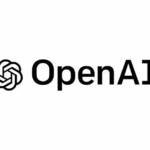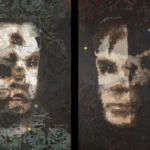Artists and creators from various fields have come together to voice their concerns over the unlicensed use of their work in training artificial intelligence models. More than 10,500 individuals, including actors, musicians, authors, and photographers, have signed a statement declaring this practice a “major, unjust threat” to their livelihoods.
Among the notable signatories are actors Julianne Moore, Kevin Bacon, and F. Murray Abraham, as well as musicians like Thom Yorke of Radiohead and Robert Smith of The Cure. The letter has garnered support from a wide range of creative professionals, including authors such as Kazuo Ishiguro and Jodi Picoult.
“The unlicensed use of creative works for training generative AI is a major, unjust threat to the livelihoods of the people behind those works, and must not be permitted,” reads the text of the statement.
The initiative was organized by Ed Newton-Rex, a British composer and former AI executive. He expressed that many in the creative industry are deeply concerned about the implications of AI on their work. “There are three key resources that generative AI companies need to build AI models: people, compute, and data,” he noted. He pointed out that while companies invest heavily in the first two resources, they often expect to acquire the third—training data—without compensation.
Newton-Rex criticized the terminology used by AI companies, stating that referring to creative works as “training data” dehumanizes the contributions of artists. He remarked, “What we’re talking about is people’s work – their writing, their art, their music.”
The issue has escalated to legal battles, with several authors, including John Grisham and George R.R. Martin, suing OpenAI for alleged copyright infringement. Additionally, music labels such as Universal Music Group and Warner Music Group have taken legal action against AI music creators for similar reasons.
The statement also addresses potential legislative changes in the UK that could allow AI firms to scrape content from artists unless they opt out. Newton-Rex warned that such an opt-out proposal would be detrimental to creators, as many may not be aware of the option to exclude their work from being used in AI training. He stated, “Even the most well-run opt-out schemes get missed by most people who have the chance to opt out.”
“It’s totally unfair to put the burden of opting out of AI training on the creator whose work is being trained on. If a government really thought this was a good thing for creators then it would create an opt-in scheme,” said Newton-Rex.
The concerns raised by artists are not limited to the UK. In the United States, the Writers Guild of America and the SAG-AFTRA union have been actively advocating for better protections against the use of AI in creative projects. These organizations have held strikes to demand fair compensation and rights for their members in light of advancements in AI technology.
In November 2023, SAG-AFTRA announced a tentative agreement with studios that would allow members to consent to the use of their likenesses in AI-generated content. This agreement aims to ensure that artists are compensated for the use of their images and voices in AI applications.
The deal also includes provisions for increased minimum compensation, health and retirement benefits, and a larger share of streaming revenue for artists. The union has made it clear that terms like “artist” and “singer” will apply only to human creators, addressing concerns about AI-generated music that mimics human performances.
The signatories of the letter represent a diverse array of talent from literature, music, film, and television, indicative of the widespread apprehension about the implications of AI on their livelihoods.
(Image by anyonlinyr on Flickr)








